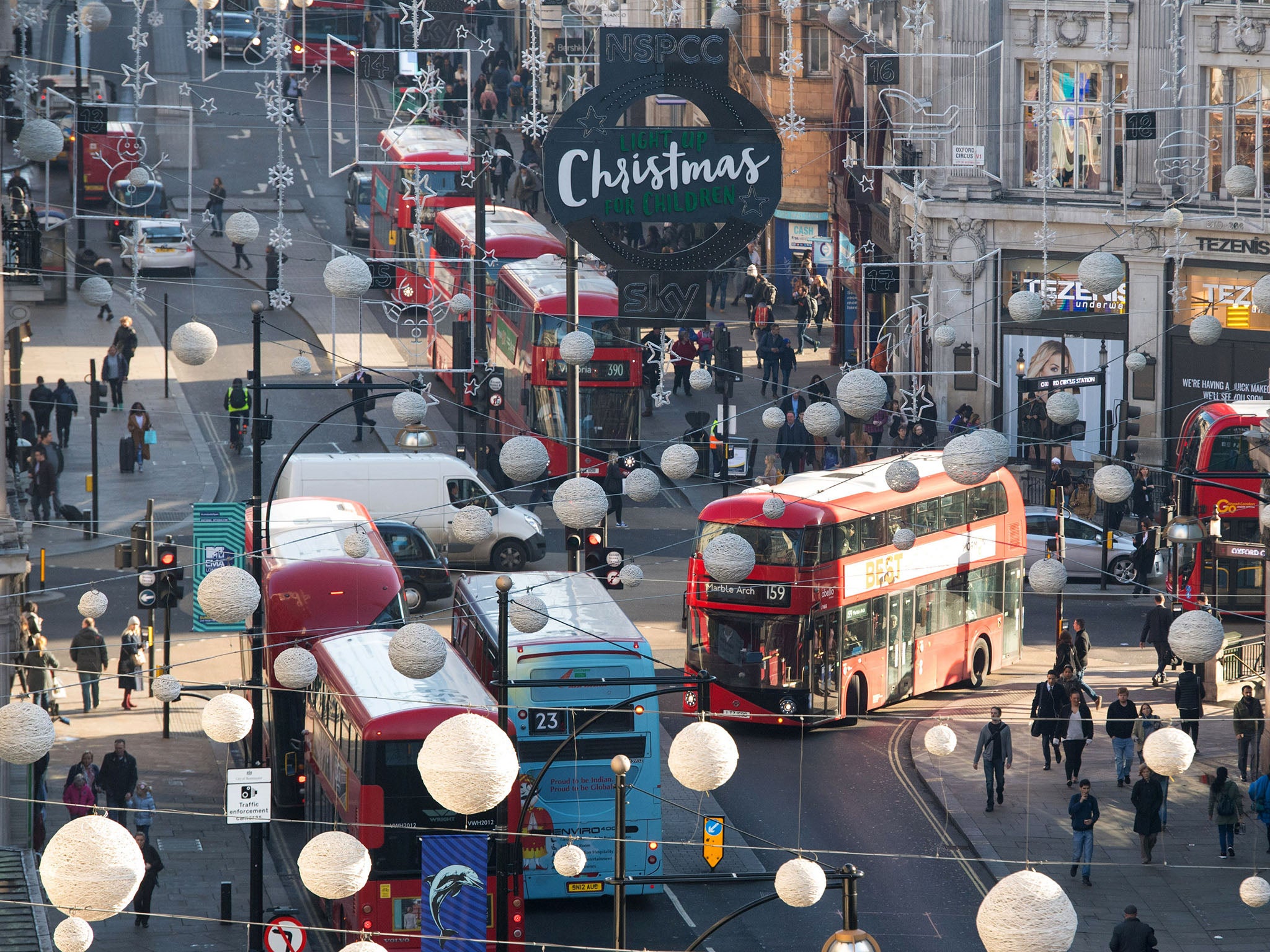Air pollution wipes out benefits of exercise, study warns
Study provides 'convincing' evidence of risk of air pollution, say independent academics

Traffic pollution poses health risks for older people and unborn babies according to two separate studies published today.
Research in the journal The Lancet has found that the dose of air pollution older people received when taking a two hour walk in a congested city street stiffens the arteries and impaired lung function.
Walking is the sort of low impact exercise recommended by the NHS for older people to improve their cardiovascular fitness, but the study found that the impact of air pollution negated this.
The study tested 119 people aged over sixty, 40 of whom were healthy, 40 with a medically-stable lung condition, COPD, and 39 with stable ischaemic heart disease.
Participants spent two hours walking along traffic-heavy Oxford Street, which is one of the most polluted spots in the UK, or in Hyde Park.
Air pollution levels were monitored before and during their walk, and each participant’s lung capacity and arterial stiffness was measured before and after.
In healthy participants the walk in Hyde Park led to a 7.5 per cent improvement in the amount of air they could expel in one breath and improvements in blood flow which persisted up to 26 hours after exercise.
But after walking on Oxford Street there were only minor improvements in lung capacity, while the measures of arterial stiffness actually got worse which the study associated with “greater exposure to black carbon soot and ultrafine particles from diesel exhaust.”
“Our findings indicate that in traffic congested streets, like London’s Oxford Street, the health benefits of walking do not always outweigh the risk from traffic pollution,” said senior author Professor Fan Chung, from the National Heart & Lung Institute at Imperial College London.
“However, this should not be seen as a barrier to many older people for whom walking is the only exercise they do. We suggest that, where possible, older adults walk in parks or other green spaces away from busy roads.”
A separate study published in The BMJ suggested that pregnant mothers exposed to higher levels of air pollution are more likely to have a baby born at lower birth weights.
This builds on previous studies which have suggested air pollution exposure could cause premature births.
But Professor Kevin McConway, emeritus professor of applied statistics at The Open University, warned that The BMJ study could not definitively conclude that it was the air pollution causing low birth weight in these cases.
It could be that women in these areas are more likely to smoke or share other traits, he said.
However he said he was convinced of the risks of traffic pollution by the intervention in the former paper in The Lancet
“This very interesting new study gets round that limitation, by getting the participants to do things they wouldn’t necessarily have chosen to do as part of their normal activity," he said.
“The research does convince me, though, that poor air quality does play an important role in the short-term benefit one can get from taking a walk.
“But perhaps that’s not all that’s going on, and I look forward to reading about future similar studies in other places.”
Join our commenting forum
Join thought-provoking conversations, follow other Independent readers and see their replies
Comments
Bookmark popover
Removed from bookmarks